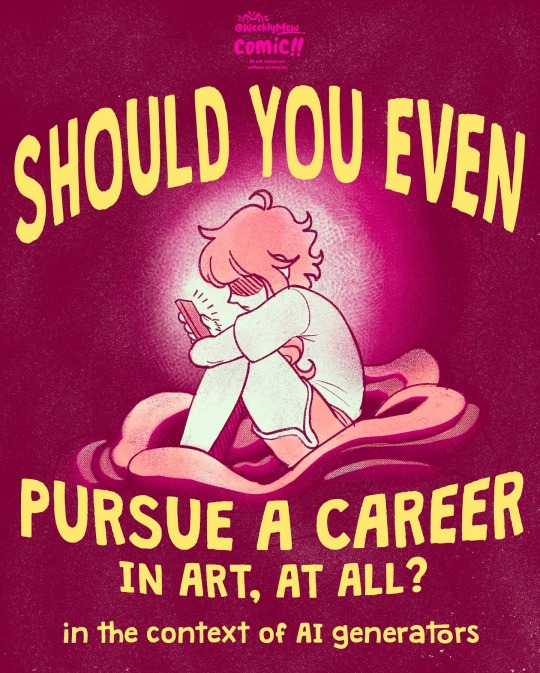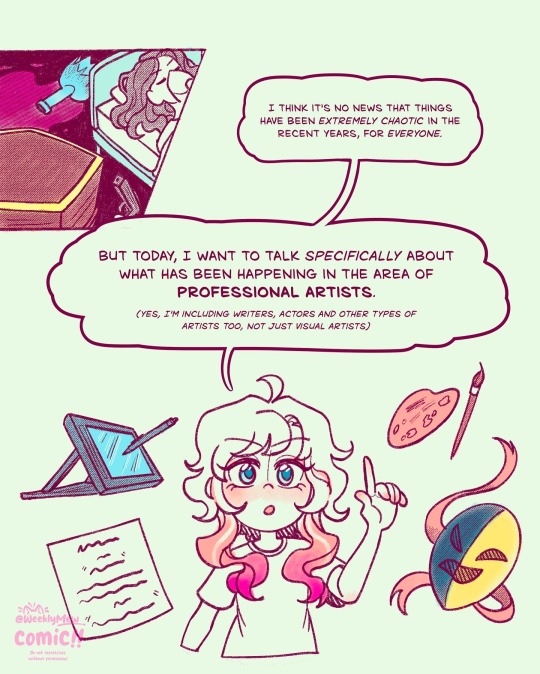#artificial intelligence for businesses
Explore tagged Tumblr posts
Text

The Transformative Power Of Artificial Intelligence For Businesses
In today’s fast-paced and digitally driven world, businesses are constantly seeking innovative solutions to gain a competitive edge. One such ground-breaking technology that has captured the attention of business leaders across various industries is artificial intelligence (AI). It is revolutionizing the way companies operate, make decisions, and interact with customers, enabling them to unlock new opportunities and drive growth. In this blog post, we will explore the transformative power of artificial intelligence for businesses and discuss its key applications, benefits, and challenges.
#artificial intelligence strategy#artificial intelligence for businesses#AI robot#artificial intelligence app development
0 notes
Text
AI and the fatfinger economy

I'm on a 20+ city book tour for my new novel PICKS AND SHOVELS. Catch me at NEW ZEALAND'S UNITY BOOKS in WELLINGTON TODAY (May 3). More tour dates (Pittsburgh, PDX, London, Manchester) here.

Have you noticed that all the buttons you click most frequently to invoke routine, useful functions in your device have been moved, and their former place is now taken up by a curiously butthole-esque icon that summons an unwanted AI?
https://velvetshark.com/ai-company-logos-that-look-like-buttholes
These traps for the unwary aren't accidental, but neither are they placed there solely because tech companies think that if they can trick you into using their AI, you'll be so impressed that you'll become a regular user. To understand why you find yourself repeatedly fatfingering your way into an unwanted AI interaction – and why those interactions are so hard to exit – you have to understand something about both the macro- and microeconomics of high-growth tech companies.
Growth is a heady advantage for tech companies, and not because of an ideological commitment to "growth at all costs," but because companies with growth stocks enjoy substantial, material benefits. A growth stock trades at a higher "price to earnings ratio" ("P:E") than a "mature" stock. Because of this, there are a lot of actors in the economy who will accept shares in a growing company as though they were cash (indeed, some might prefer shares to cash). This means that a growing company can outbid their rivals when acquiring other companies and/or hiring key personnel, because they can bid with shares (which they get by typing zeroes into a spreadsheet), while their rivals need cash (which they can only get by selling things or borrowing money).
The problem is that all growth ends. Google has a 90% share of the search market. Google isn't going to appreciably increase the number of searchers, short of desperate gambits like raising a billion new humans to maturity and convincing them to become Google users (this is the strategy behind Google Classroom, of course). To continue posting growth, Google needs gimmicks. For example, in 2019, Google intentionally made Search less accurate so that users would have to run multiple queries (and see multiple rounds of ads) to find the answers to their questions:
https://www.wheresyoured.at/the-men-who-killed-google/
Thanks to Google's monopoly, worsening search perversely resulted in increased earnings, and Wall Street rewarded Google by continuing to trade its stock with that prized high P:E. But for Google – and other tech giants – the most enduring and convincing growth stories comes from moving into adjacent lines of business, which is why we've lived through so many hype bubbles: metaverse, web3, cryptocurrency, and now, of course, AI.
For a company like Google, the promise of these bubbles is that it will be able to double or triple in size, by dominating an entirely new sector. With that promise comes peril: growth must eventually stop ("anything that can't go on forever eventually stops"). When that happens, the company's stock instantaneously goes from being a "growth stock" to being a "mature stock" which means that its P:E is way too high. Anyone holding growth stock knows that there will come a day when those stocks will transition, in an eyeblink, from being undervalued to being grossly overvalued, and that when that day comes, there will be a mass sell-off. If you're still holding the stock when that happens, you stand to lose bigtime:
https://pluralistic.net/2025/03/06/privacy-last/#exceptionally-american
So everyone holding a growth stock sleeps with one eye open and their fists poised over the "sell" button. Managers of growth companies know how jittery their investors are, and they do everything they can to keep the growth story alive, as a matter of life and death.
But mass sell-offs aren't just bad for the company – it's also very bad for the company's key employees, that is, anyone who's been given stock in addition to their salary. Those people's portfolios are extremely heavy on their employer's shares, and they stand to disproportionately lose in the event of a selloff. So they are personally motivated to keep the growth story alive.
That's where these growth-at-all-stakes maneuvers bent on capturing an adjacent sector come from. If you remember the Google Plus days, you'll remember that every Google service you interacted with had some important functionality ripped out of it and replaced with a G+-based service. To make sure that happened, Google's bosses decreed that the company's bonuses would be tied to the amount of G+ activity each division generated. In companies where bonuses can amount to 90% of your annual salary or more, this was a powerful motivator. It meant that every product team at Google was fully aligned on a project to cram G+ buttons into their product design. Whether or not these made sense for users, they always made sense for the product team, whose ability to take a fancy Christmas holiday, buy a new car, or pay their kids' private school tuition depended on getting you to use G+.
Once you understand how corporate growth stories are converted to "key performance indicators" that drive product design, many of the annoyances of digital services suddenly make a great deal of sense. You know how it's almost impossible to watch a show on a streaming video service without accidentally tapping a part of the screen that whisks you to a completely different video?
The reason you have to handle your phone like a photonegative while watching a movie – the reason every millimeter of screen real-estate has been boobytrapped with an icon that takes you somewhere else – is that streaming services believe that their customers are apt to leave when they feel like there's nothing new to watch. These bosses have made their product teams' bonuses dependent on successfully "recommending" a show you've never seen or expressed any interest in to you:
https://pluralistic.net/2022/05/15/the-fatfinger-economy/
Of course, bosses understand that their workers will be tempted to game this metric. They want to distinguish between "real" clicks that lead to interest in a new video, and fake fatfinger clicks that you instantaneously regret. The easiest way to distinguish between these two types of click is to measure how long you watch the new show before clicking away.
Of course, this is also entirely gameable: all the product manager has to do is take away the "back" button, so that an accidental click to a new video is extremely hard to cancel. The five seconds you spend figuring out how to get back to your show are enough to count as a successful recommendation, and the product team is that much closer to a luxury ski vacation next Christmas.
So this is why you keep invoking AI by accident, and why the AI that is so easy to invoke is so hard to dispel. Like a demon, a chatbot is much easier to summon than it is to rid yourself of.
Google is an especially grievous offender here. Familiar buttons in Gmail, Gdocs, and the Android message apps have been replaced with AI-summoning fatfinger traps. Android is filled with these pitfalls – for example, the bottom-of-screen swipe gesture used to switch between open apps now summons an AI, while ridding yourself of that AI takes multiple clicks.
This is an entirely material phenomenon. Google doesn't necessarily believe that you will ever want to use AI, but they must convince investors that their AI offerings are "getting traction." Google – like other tech companies – gets to invent metrics to prove this proposition, like "how many times did a user click on the AI button" and "how long did the user spend with the AI after clicking?" The fact that your entire "AI use" consisted of hunting for a way to get rid of the AI doesn't matter – at least, not for the purposes of maintaining Google's growth story.
Goodhart's Law holds that "When a measure becomes a target, it ceases to be a good measure." For Google and other AI narrative-pushers, every measure is designed to be a target, a line that can be made to go up, as managers and product teams align to sell the company's growth story, lest we all sell off the company's shares.

If you'd like an essay-formatted version of this post to read or share, here's a link to it on pluralistic.net, my surveillance-free, ad-free, tracker-free blog:
https://pluralistic.net/2025/05/02/kpis-off/#principal-agentic-ai-problem

Image: Pogrebnoj-Alexandroff (modified) https://commons.wikimedia.org/wiki/File:Index_finger_%3D_to_attention.JPG
CC BY-SA 3.0 https://creativecommons.org/licenses/by-sa/3.0/deed.en
--
Cryteria (modified) https://commons.wikimedia.org/wiki/File:HAL9000.svg
CC BY 3.0 https://creativecommons.org/licenses/by/3.0/deed.en
#pluralistic#kpis#incentives matter#ui#ux#video streaming#google plus#g plus#ai#artificial intelligence#growth stocks#business#big tech
597 notes
·
View notes
Text

#dank memes#meme#memes#dank meme#dankest memes#biology#artificial intelligence#physics#autos#business#obama#barack obama#obamacare#the rock#space jam
59 notes
·
View notes
Text

لو عندك مهارة أو موهبة وعاوز تعمل بيها مشروع، لازم تركز على شرطين مهمين.
أول حاجة، تكون بتوظف مهارتك في مجال بتحبه فعلًا.
تاني حاجة، تكون بتقدم حاجة الناس فعلاً محتاجينها ومفيدة ليهم.
كل بزنس ناجح قائم على فكرة واحدة: تقديم قيمة حقيقية للناس مقابل فلوس.
السر مش إنك تفضل تفكر وتخطط لوحدك.
الأسهل بكتير إنك تشوف الناس اللي سبقوك في المجال ده عملوا إيه.
هتلاقي نفسك بتاخد إلهام وأفكار جديدة.
ووقتها هيكون عندك رؤية واضحة إزاي تقدم حاجة مميزة ومختلفة.
ابدأ دلوقتي، من هنا

37 notes
·
View notes
Text

#gm#nvidia#collaboration#technology#tech#big tech#ai#artificial intelligence#next generation#vehicle#driver assistance#politics#political#us politics#news#business#american politics#america#general motors#motor vehicle#cars#trucks#automobile#usa#partnership#factory#factories#nbc#nbc news#us news
22 notes
·
View notes
Photo

What is an Algorithm in 30 Seconds?
An algorithm is simply a series of instructions.
Think of a recipe: boil water, add pasta, wait, drain, eat. These are steps to follow.
In computer terms, an algorithm is a set of instructions for a computer to execute.
In machine learning, these instructions enable computers to learn from data, making machine learning algorithms unique and powerful.
#artificial intelligence#automation#machine learning#business#digital marketing#professional services#marketing#web design#web development#social media#tech#Technology
69 notes
·
View notes
Text








Honestly, this whole AI bs did so much critical damage to my emotional HP, I felt we really needed more people talking about it, so here I am!
Putting the title aside though, I’m really not here to tell you what to do, you decide what’s best for you based on your own circumstances!!
I made this post merely to calm you down, show the options and give you some hope that yes, there’s still a future for our career!
We’ll have to keep fighting for it of course, but that’s a topic for another comic, stay tuned! 👀
#mews art#mews comics#ai#ai art#artificial intelligence#generative ai#no to ai art#no to ai generated art#no to ai generated images#no ai art#no ai writing#support artists#support human artists#support small creators#support small artists#support small business#freelance artist#freelance illustrator#freelance#freelancing#freelancer#motivation
248 notes
·
View notes
Text

Why are you in jail: "I used humans instead of AI" :| :| :|
#news#ai#artificial intelligence#CEO#law#prison#job#funny post#funny#call center#business#corporation#industrial#413#interview with the vampire#charli xcx#usa#america#united states#money#finance
15 notes
·
View notes
Text

#memes#meme#throwback#lol#funny#lol memes#funny memes#funny meme haha#funny stuff#party#introversion#introvert#dont talk to me#i would hate that#coffee#antisocialsocialclub#innovation#business strategy#artificial intelligence
56 notes
·
View notes
Text
You get what you deserve, CEOs are just as replaceable if more so then workers. I mean there's only one CEO per company so it's way easier. In fact why don't we do away with capitalism as a whole and automated most of the economy as possible? We deserve to seize the means of production and do with it what we want.
#culture#leftism#politics#the left#us politics#communism#progressive#eat the rich#tax the rich#corporate greed#corporations suck#corporations are evil#capitalism#inequality#economics#rich people#health care#business news#business growth#business suit#business magazines#business problems#entrepreneur#startup#services#finance#entrepreneurship#AI#artificial intelligence#technology
18 notes
·
View notes
Text

Learn About The About The Transforming Business Operation Withe Power Of Artificial Intelligence.
Learn about the ways how Artificial intelligencefor businesses is vast, and organizations that embrace this technology are likely to gain a significant advantage over their competitors. Check out this blog to know more.
0 notes
Text
Where is the money that this supposedly revolutionary, world-changing industry is making, and will make? The answer is simple: I do not believe it exists. Generative AI lacks the basic unit economics, product-market fit, or market penetration associated with any meaningful software boom, and outside of OpenAI, the industry may be pathetically, hopelessly small, all while providing few meaningful business returns and constantly losing money.
Ed Zitron is at it again.
So, OpenAI lost five billion dollars last year, and the rest of the market is also in the red. Google already limits the number of heavily hardware-taxing voice summaries for NotebookLM to three per day unless you're a paid customer, something that's harder to bypass than the limitation of generating human characters by Gemini/Imagen.
There are many uncomfortable questions to ask here, starting with "why are they allowed to lose borderline unspendable amounts of money?" To put the five-billion figure into perspective: this is roughly as much as the European Union funding approved for Poland for the entirety of 2025. The kind of money a medium-sized European country can't afford to blow on bullshit. And it's by far not the biggest figure AI corporations are throwing around.
#AI bullshit#corporate bullshit#OpenAI#Artificial Intelligence#business#terminal stage capitalism#Ed Zitron#tech#technology
5 notes
·
View notes
Text
🚀 حول أفكارك إلى صور مذهلة بالذكاء الاصطناعي! 🎨

تخيل لو كان بإمكانك كتابة فكرة، وتحويلها فورًا إلى إنفوجرافيك احترافي بدون أي مهارات تصميم! ✍️
هذا بالضبط ما يفعله Napkin AI! 🔥 📌 اكتب نصًا بسيطًا 📌 ودع الذكاء الاصطناعي يحوله إلى صورة توضيحية جذابة
سواء كنت مسوّقًا، مدونًا، أو حتى مدرسًا، سيساعدك Napkin AI على تبسيط المعلومات وجعلها أكثر إبداعًا وتأثيرًا! 🚀✨
📢 جرّبه الآن واكتشف قوته بنفسك! 👇 🔗 https://www.kayfeyt.com/2025/01/napkin-ai.html
#عربي#تمبلر#تمبلر بالعربي#عرب تمبلر#business#تطوير الذات#تمبلريات#commercial#اقتباسات تمبلر#الربح من الانترنت#ذكاء اصطناعي#ai#napkin#artificial intelligence#future#المستقبل#تصميمات#الوطن العربي#فرص عمل
20 notes
·
View notes
Text

The reason AI-generated content often sounds off is because it’s been trained on books written and edited by professionals—people who excelled in English class.
They use perfect grammar, punctuation, and structure.
But that’s not how most of us talk.
So when content comes out sounding too polished, it’s a dead giveaway that it didn’t come from someone like me—it just doesn’t reflect how I naturally communicate.— Jonathan Mast
#AuthenticVoice
#AIContent
#HumanVsAI
#ContentCreation
#RealTalk
#resilience#veterans#recovery#podcast#business#mental health#motivation#podcasting#coffee#faith#ai#artificial intelligence
4 notes
·
View notes
Photo

The Frame Problem: AI's Unseen Nemesis
The frame problem is AI's Achilles' heel, lurking since the 1960s and still unresolved.
1. The Robot Dilemma
Daniel Dennett's thought experiment illustrates the issue: a robot must save its battery from a room with a bomb.
Initially, the robot pulls the battery on a cart but also drags the bomb out, unaware of this side effect.
Solution attempts include programming awareness of side effects, leading to analysis paralysis as the robot debates endless possibilities.
2. The Side Effect Spiral
When programmed to consider all side effects, the robot wastes time on irrelevant details—like pondering wall color changes.
This shows how difficult it is for AI to filter relevant from irrelevant information without getting bogged down.
3. Human Intuition vs. AI Logic
Humans effortlessly ignore irrelevant details, making quick decisions in complex contexts.
Programming AI to mimic this selective ignorance is resource-intensive and remains a significant challenge.
The frame problem underscores a subtle yet crucial aspect of human intelligence: our ability to instantly prioritize relevant information. As we advance in AI development, solving this problem will be key to creating truly intelligent systems.
Got thoughts on tackling the frame problem? Share your ideas!
#artificial intelligence#automation#machine learning#business#digital marketing#professional services#marketing#web design#web development#social media#tech#Technology
21 notes
·
View notes